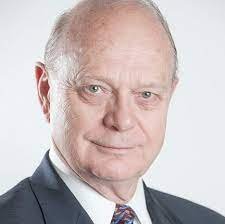365: Crisis=Opportunity for Governments to Seize Control

Podcast: Download
Government is a funny thing. It is an organization that makes and enforces rules and regulations. The more rules and regulations it makes, the bigger it gets. It’s a monster.
Government is also a significant employer that doesn’t seem to care much about being lean and profitable. Instead, it thrives on making itself even bigger and creating more things to control.
But as the government starts to infringe on people’s perceived personal space, people start to push back and that is the only force that resists this monster’s thirst for power.
Make no mistake, during these times when governments are held in check by their people, the monster’s appetite for power and growth does not go away. It lurks in the background waiting for its opportunity to pounce.
That opportunity comes when people are at their most vulnerable—in times of crisis. When things go south, people are willing to give up more of their freedoms in exchange for stability. Governments are more than happy to oblige.
Just think about some of the crises in recent history and the government response to those events: The Terrorist attack of 9/11, the 2008 financial crisis, Covid, and the Silicon Valley Bank failure. In each situation, the government found an opportunity to change the rules and obtain more control.
This playbook isn’t just a conspiracy theory. It’s just how things work. Mainstream government figures will tell you the same as you’ll find out in this week’s episode of Wealth Formula Podcast.
Listen Now!

Alex J. Pollock is a Senior Fellow with the Mises Institute, providing thought and policy leadership on financial issues and the study of financial systems. His work includes cycles of booms and busts, financial crises with their political responses, housing finance, government-sponsored enterprises, risk and uncertainty, central banking, banking and financial regulation, corporate governance, retirement finance, student loans, and the politics of finance.
He previously served as the Principal Deputy Director of the Office of Financial Research in the U.S. Treasury Department 2019-2021. He was a Distinguished Senior Fellow with the R Street Institute 2015-2019 and 2021, and a resident fellow at the American Enterprise Institute, 2004-2015. Among the many aspects of his AEI work, he developed the One Page Mortgage Form to give borrowers in clear form the key information they need in order to know what they are committing themselves to. He was President and CEO of the Federal Home Loan Bank of Chicago from 1991 to 2004. There he invented the Mortgage Partnership Finance program, which successfully created front-end mortgage credit risk sharing beginning in 1997. His decades of banking experience include being a Visiting Scholar at the Federal Reserve Bank of St. Louis, 1991.
Pollock was a director of the CME Group 2004-2019 and of Ascendium Education Group 1989-2019. He is a director and past-chairman of the Great Books Foundation and a past president of the International Union for Housing Finance.
He is the author of Surprised Again! – The COVID Crisis and the New Market Bubble (2022), Finance and Philosophy—Why We’re Always Surprised (2018), and Boom and Bust: Financial Cycles and Human Prosperity (2011), as well as numerous articles and Congressional testimony.
Pollock is a graduate of Williams College, the University of Chicago, and Princeton University.
He and his wife, Anne, live in Lake Forest, Illinois; they have four grown children and ten grandchildren. His interests include political finance, policy, history, ideas, management, music, and the pursuit of clarity.

Howard B. Adler is an attorney and former government official. He served as Deputy Assistant Secretary of the Treasury for the Financial Stability Oversight Council, where his job was to monitor and remediate threats to the financial stability of the United States. The Secretary of the Treasury awarded him the Treasury Distinguished Service Award for his work. For over 30 years, he was a partner at the law firm of Gibson Dunn & Crutcher, LLP, where he was cohead of the firm’s corporate transactional practice. He received numerous professional accolades as a lawyer, including recognition by Chambers USA: America’s Leading Business Lawyers as a Senior Statesman and Tier 1 mergers and acquisitions and private equity lawyer in Washington, D.C.; Best Lawyers in America for securities law and mergers and acquisitions; and Super Lawyers for mergers and acquisitions and securities/ capital markets law. Prior to Gibson Dunn, he was Executive Vice President and General Counsel of The Riggs National Bank of Washington, D.C. Mr. Adler received his B.A. from The Johns Hopkins University and his J.D. from New York University School of Law, where he was Note and Comment Editor of the Law Review. Mr. Adler has served as a member of the Board of Governing Trustees of American Ballet Theatre, Treasurer of the Washington D.C. Bar and Secretary of the Johns Hopkins Alumni Council.
Shownotes:
- Government agencies tend to use moments of shock in the boom and bust cycles to gain power
- Is all finance political?
- Surprised Again! – The COVID Crisis and the New Market Bubble
 Send Buck a voice message!
Send Buck a voice message!




